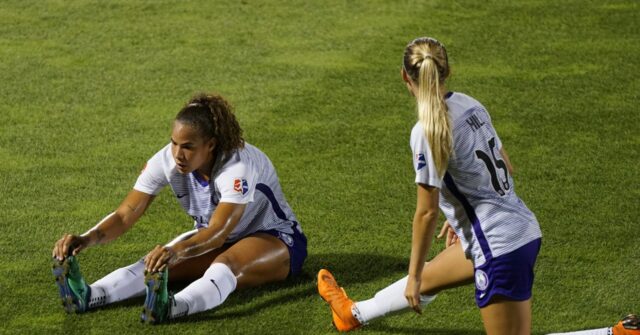High school students across New York State are mobilizing for a significant event called the “Walk Off for Fairness Day,” scheduled for October 24. This walkout, inspired by the Coalition to Protect Kids, aims to advocate for the integrity of women’s sports. The date is strategically chosen to precede the upcoming Election Day, during which voters will decide on Proposition 1, an “Equal Rights Amendment” proposal that seeks to include “gender identity” as a new protected status against discrimination. Critics argue that although the proposition does not explicitly address women’s athletics, it could enable biological males who identify as female to compete in women’s sports, threatening the competitive landscape that female athletes have fought to establish over decades.
In light of these developments, some local lawmakers, particularly in Nassau County, have taken action to address concerns about transgender participation in women’s athletics. Recently, they passed a bill that outright prohibits transgender athletes from competing in girls’ and women’s sports at county-run facilities. This legislation encompasses over 100 sites in the suburbs of New York City and requires any sports teams or organizations seeking permits from the county’s parks and recreation department to specify whether they are designated for male, female, or coed athletes. Notably, female teams or leagues could lose their permits should they choose to include transgender athletes, setting a precedent that could redefine the playing field for girls’ sports locally.
The walkout has garnered significant support from conservative leaders within the state. Ayesha Kreutz, a spokesperson for the Coalition to Protect Kids-NY, expressed a strong sentiment about the challenges faced by female athletes in New York. She described the walkout as a vital opportunity for young women to voice their concerns in a safe environment. Kreutz highlighted the fear that many young women feel when expressing their opinions on this contentious topic, suggesting that they are witnessing a regression in the advancements made in female athletics. She noted that the ongoing situation has led to feelings of being marginalized, questioning why girls, who have historically battled for equality in sports, are being treated as second-class citizens.
A noticeable theme among students participating in the walkout is the assertion of fairness in competitions and safe spaces in sports specifically designated for females. Young athletes, such as 16-year-old Hannah Pompeo from Buffalo, have articulated their frustration about the physical advantages they believe boys have in sports, which renders competition inequitable. Millie McCormack, a dancer from Somers High School, echoed similar sentiments by emphasizing the dedication that female athletes have invested in securing their places in sports teams. She expressed concern about male participation in female-only spaces, adding to the narrative that many girls feel their hard-earned spots are being jeopardized.
The upcoming walkout serves as a focal point for a larger discussion about gender identity in sports and the complexities that arise from including transgender individuals in gender-specific competitions. Advocates for transgender rights argue for inclusivity, emphasizing the importance of allowing individuals to compete in alignment with their gender identity. However, critics maintain that such inclusivity can undermine the competitive nature of women’s sports, which is grounded in biological differences. This tension has fueled debates not only within academic and athletic circles but also in broader societal discussions, reflecting the challenges faced by policymakers and educators in navigating this rapidly evolving landscape.
As the date of the walkout approaches, it highlights significant divides in opinions on this issue, with young women taking a stand for what they perceive as fairness in athletics. The actions of these students and the broader implications of Proposition 1 underscore the complicated intersection of gender identity, sports, and equal rights. With each side presenting strong arguments, the discourse surrounding women’s sports remains charged, raising essential questions about how best to strive for both inclusion and fairness in competitive environments.

